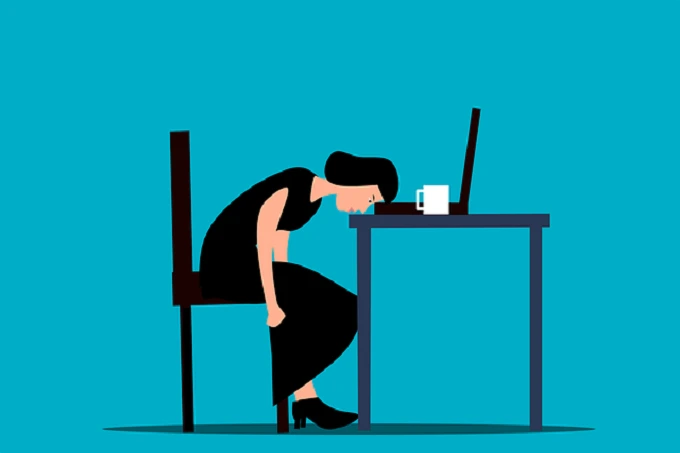Solutions to overworking: here are the 10 tips

Fatigue causes a sensation of exhaustion and a loss of energy. It is more challenging to carry out daily chores, concentrate on duties, and force oneself to finish what needs to be done. Additionally, it may be accompanied by symptoms such as headaches, apathy, or shifts in mood. We have gathered recommendations in this article to help you cope with overwork and regain your energy.
1. Drink plenty of water
Dehydration exhausts the body and reduces performance. It can cause fatigue and overwork, even if we do not perform active activities and are not subjected to stress.
It is also difficult to concentrate when doing so. Therefore, it is essential to ensure that you do not forget to drink water, particularly when experiencing extreme fatigue.
2. Take a stroll while listening to the music

Even a little stroll provides benefits in the form of both physical activity and exposure to the outdoors. In addition to this, it is an excellent way to relax and quiet down.
Include some of your favourite songs in your walking routine if you want the exercise to be as beneficial as possible in the fight against overwork. According to a study conducted in 2011 and published in the journal Nature Neuroscience, listening to upbeat music for fifteen minutes can help a person feel more invigorated. This impact happens because the brain releases happiness chemicals, such as dopamine, serotonin, and oxytocin, when listening to pleasurable songs, and these hormones boost one’s overall sense of well-being.
3. Stay alone
When we are already at our limit for energy, engaging in social activities can only worsen the situation. As a result, it is essential to schedule time when you may be by yourself and focus on yourself. This will assist in restoring strength as well as relaxing and helping to cope with stress.
4. Let the sunlight into the room

When the room is dark, we feel sleepy. This is because, without light, the brain produces more melatonin, the sleep hormone. In addition, the lack of sunlight can worsen our mood and aggravate the feeling of fatigue.
Open curtains and blinds indoors, and use bright lighting when working in the evening. And to cheer up during the day, take a walk at lunchtime.
5. Find time for fun
Hobbies and other enjoyable activities help you take your mind off difficult tasks and boost your energy levels. Therefore, finding at least a little time for them every day is important.
Even something as small as getting a new haircut or watching an interesting video can help you deal with overwork.
6. Adjust your diet

The foods we eat can help us get the energy we need. But sometimes food has the opposite effect.
Try to give up fatty foods, fast food, and sweet snacks in the morning. It is better to choose foods rich in fiber, such as oatmeal, vegetables, and fruits. It is also important to include foods containing protein and omega-3s in your diet.
7. Give up smoking and alcohol
Cigarettes and alcohol contribute to the feeling of overwork. Tobacco contains many toxins that lead to poor blood oxygenation, and this causes a feeling of fatigue and exhaustion.
It is also worth giving up alcohol before bed. Although it causes some drowsiness that helps you fall asleep, you will feel tired and depressed in the morning.
8. Reduce stress at work
Overwork often overtakes us at work, especially when we are loaded with many cases and deadlines.
It is important to organize and plan your day to cope with unpleasant sensations. Make a daily to-do list. Try to allocate morning hours for solving complex problems and leave simple ones for the evening. Also, it is better to hold meetings in the morning and the afternoon.
9. Set up a sleep schedule

Lack of sleep, especially chronic, is a common cause of overwork. It deprives us of energy and brings a headache and absent-mindedness.
To cope with overwork, it is important to establish a sleep schedule. Try to wake up and fall asleep at the same time. And also, spend as much time in bed as you need to feel rested.
10. Do yoga

Yoga is good for relaxation and stress reduction. In addition, calm workouts without active movements can be done even when you feel very tired.
A study conducted in 2019 by a Swedish researcher discovered that practising yoga for six months considerably raised levels of energy and improved well-being.
Interestingly, the participants in the experiment were people aged 65-85 years who were not previously familiar with such training. From this, we can conclude that yoga is never too late




